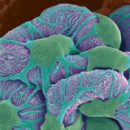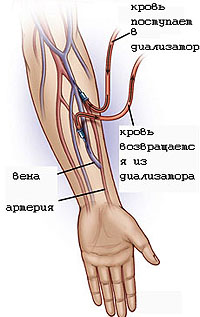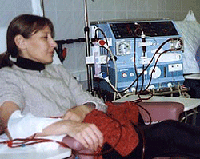Almost every woman at least once in his life came across this acute problem - cystitis. Student, painful urination, stupid pain at the bottom of the abdomen, nausea ... if the disease is launched, it can affect many vital organs and cause inflammation in them, and this is fraught with very serious consequences.
Content
What is cystitis?
Cystitis - inflammation of the walls of the bladder. It occurs when infection is penetrating through the urethra or kidney in the bladder. Once sick, a woman risks to encounter this problem again and again (the infection returns in 15% of cases).
Cystitis is one of the most frequent groups of bacterial infections.
In the USA annually 3 million people turn to a doctor about cystitis. In Russia, this disease also suffers many women. Sociologists interviewed 660 young women from 4 cities in Russia. The development of at least one episode of cystitis during the lifetime was noted by 19% of respondents.
The developed two and more episodes of cystitis during the year were noted 51.2% of patients, 3 episodes - in 27.4%, 4 episodes - in 14.4%, 6 episodes - in 7.2% of patients. Sometimes symptoms of cystitis are manifested so that the woman even temporarily loses the ability to lead the familiar lifestyle. Thus, cystitis in 17.5% of respondents led to temporary disability within 1-3 days, in 6.3% - for 3-5 days, in 6.3% for 5-7 days, in 4% - More than 7 days.
Symptoms of cystitis
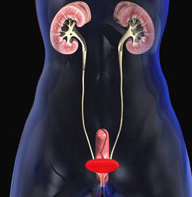 Acute cystitis may appear suddenly. There is discomfort, burning in the perineum during urination - it becomes frequent (sometimes every 5-10 minutes) and painful, and the amount of urine is reduced each time. Pain can be different: burning, cutting, stupid - at the end of urination it increases.
Acute cystitis may appear suddenly. There is discomfort, burning in the perineum during urination - it becomes frequent (sometimes every 5-10 minutes) and painful, and the amount of urine is reduced each time. Pain can be different: burning, cutting, stupid - at the end of urination it increases.
In the urine there may be a torment (gray or white) and even blood admixture. Pain appears at the bottom of the abdomen, spin or loins. Sometimes the woman rises the temperature and nausea appears.
Experts from England conducted a study and found out that women are panicly afraid of the first symptoms of cystitis. The results of the survey of more than 100 girls showed that 50% of at least once experienced painful symptoms of cystitis.
40% of the traditional female disease have believed that they suffer a much more terrible disease than cystitis - venereal disease or cancer. 35% reported that they believe that in their case cystitis was caused by sex. More than 50% were engaged in self-medication and 28% turned for help to a gynecologist.
Causes of cystitis
So, the disease can provoke various factors, for example:
- Body supercooling (one of the most frequent reasons),
- Inflammation of genital organs,
- constipation,
- Stones in the kidneys, bladder,
- Frequent use of acute food, alcoholic beverages,
- Too close clothes,
- Pregnancy, childbirth.
Provoke cystitis can stress. Strong psychological experiences dramatically weaken the immunity of a woman. Stress gives a kind of impetus to an inflammatory process that occurs in the weak place of the body. Therefore, if earlier you had inflammation in the bladder, then stress may well be the cause of cystitis.
The infection of urinary tract in women is very often associated with sexual life - that is why it is important to comply with the rules of personal hygiene. It is believed that if before and after having sex go to the toilet (empty the bladder), then the likelihood of cystitis decreases by 2 times.
Some women believe that after the occurrence of menopause cystitis, it cannot arise - but it is not at all. With age, the body loses water, and because of this, all tissues of the body become more rigid, lose elasticity and are not compressed as efficiently as before. This also applies to the walls of the bladder. As a result, the bladder is empty not completely and infection begins to accumulate in it.
Treatment cystitis
According to scientists, if the inflammation of the bladder is not to be treated in a timely manner, then in 40% of cases cystitis goes into a chronic form, which is much more difficult to cure than the acute process. Therefore, at the first symptoms of cystitis, it is important to immediately consult a doctor.
Treatment of cystitis reduces to three main factors: the use of drugs, proper nutrition and adherence to personal hygiene.
The use of antibacterial and anti-inflammatory drugs must. The most common drugs are:
- Biseptol (usually prescribed 2 tablets 2 times a day),
- Neversman (0.5 g 4 times a day),
- Furadonin (0.1 g 4 times a day),
- Furagin (0.1 g 3 times a day).
If after 5-10 days cystitis is not cured, antibiotics are prescribed. It is usually ampicillin (500 mg 4 times a day).
Diet with cystitis
When cystitis is extremely important. So, first of all, it is necessary to exclude food from the diet products containing a lot of salt (canned and pickled products, chips, crackers), concentrated proteins (meat, cottage cheese, cheese, fish, beans), products containing artificial sugar (sweets, candy, carbonated drinks).
It is best to use fresh vegetables, freshly squeezed vegetable juices (carrot is especially useful), whole cereal cereals.
Healing Cranberry
Scientists of the whole world agreed that the cranberries may be extremely useful in classical female disease. Experts have proven that if drinking 1.5 cups of cranberry juice per day, then exacerbations happen 2 times less.
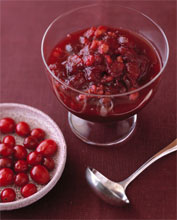
Therapeutic cranberry effect is explained by the presence of benzoic acid and proantocyanidines in it (except for the cranberries of proanthocyanidines are in blueberries, blueberries, plum, avocado, earthwood, cinoon and curry).
Due to its anti-inflammatory and antibacterial properties, cranberries called the natural antibiotic. In addition, it is believed that the substances contained in cranberry juice change the composition of urine, and it becomes unsuitable for the vital activity of bacteria.
Cranberries useful in any form: Fresh, dried, frozen, cranberry nectar and morse. So, the daily medicinal dose of cranberries includes:
- 1.5 cup (300 ml) 25-30% cranberry juice,
- 2.5-3 cups of 15% cranberry morse,
- 1.5 cup (300 ml) fresh or frozen berries,
- 1 tablespoon (30 grams) dry berries cranberries.
Better, of course, there are berries, as in juice and mice it is additionally contained and sugar.
Frozen berries are optionally completely defrosting before use. You can do this: in hot tea to throw a handful of frozen berries, to use them better as quickly as possible so that the cranberry can wander only from above, remaining frozen inside.
Another useful properties of cranberries: Israeli scientists have found that its juice contains a component that protects the cells of the urethra from the penetration of pathogenic bacteria.
However, there is one very significant «but»: Cranberry juice should not enhance burning during urination. If this happens, then the reason for cystitis lies not in pathogenic bacteria, but in something else.

